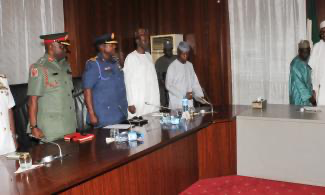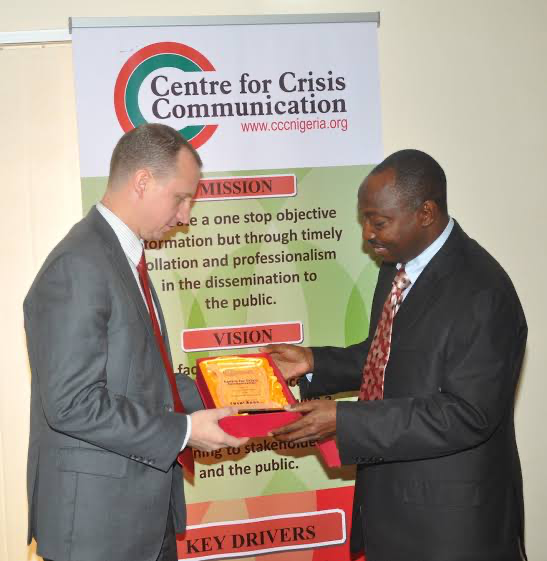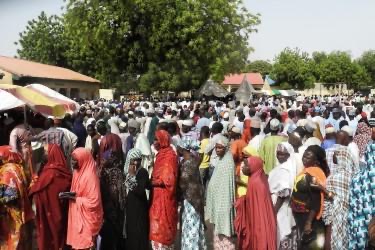While decorating the new service chiefs with their new ranks on August 13, 2015, President Muhammadu Buhari charged them to defeat Boko Haram in three months.
He said: “While commending the efforts of the Armed Forces so far, you need to brace up and continue to team up with other stakeholders to come up with a well-coordinated joint effort which will bring a desired end to these insurgencies within three months.”
The decoration ceremony came exactly a month after their appointment on July 13, 2014. Therefore with the three months’ notice, by November 13, 2015 or before the end of the year at the latest, Boko Haram terrorism should be history in the country.
Armed with impeccable military career and record of honesty, President Muhammadu Buhari has initiated new strategic measures to address seeming insecurity in the country. He has instructed the location of the military high command centre close to the theatre of war and engaged in diplomatic shuttle to secure the collaboration of neighbouring countries in tackling the insurgents frontally.
In demonstrating abiding loyalty to the Commander-in-Chief, the Office of the National Security Adviser (ONSA) swung into action immediately. ONSA is statutorily empowered by Terrorism Prevention Act 2011 to coordinate and support “all security, intelligence, law enforcement agencies and military services to prevent and combat acts of terrorism in Nigeria.” Therefore, the office is the most powerful after the Presidency in ensuring effective formulation and implementation of comprehensive counter-terrorism strategy in the country.
In less than 24 hours of the Presidential directive, the National Security Adviser, retired Major General Babagana Monguno led the security chiefs to the warfront for on-the-spot-assessment and for strategic planning. Those in his entourage included Lt-Gen Abayomi Olonishakin, Chief of Defence Staff; Lt. General T.Y. Buratai, Chief of Army Staff; Vice Admiral Ibok-Ete Ekwe Ibas, Chief of Naval Staff; Air Marshal Sadique Abubakar Chief of Air Staff and Inspector General of Police Solomon Arase. The only person conspicuously missing is the seeming taciturn Director General of Department of State Services (DSS), Lawan Daura, who rather prefers to acts behind the scene.
More fighter jets and attack helicopters were deployed, with the Chief of Air staff, Air Marshal Sadiq Abubakar commanding some of the air missions. Meanwhile, videos have emerged of aerial bombardments and destructions of terrorists’ bunkers and other locations, especially in Sambisa Forest.
The ground troops were not left out as they continue to engage the disorganised and fleeing terrorists in merciless operations using armoured trucks and other sophisticated armaments. Surprisingly, the daring terrorists attempted an ambush on the convoy of Chief of Army Staff during an operational tour of the front. Fortunately, none of the demented terrorists escaped as they met their waterloo from the gallant troops who killed most and arrested others.
It is gratifying to also note efforts being made to address the plight of the traumatised Internally Displaced Persons through interventions of humanitarian bodies like the National Emergency Management Agency (NEMA).
The top security officers are currently enjoying the euphoria and the goodwill of President Buhari. The honeymooning of the election victory has been sustained where every appointment, every pronouncement, in fact every action of the leadership of the current administration receive overwhelming endorsements.
While the politicians can play politics with every issue, the security chiefs should remain focused on the job by providing qualitative leadership and improving the welfare of the foot-soldiers. They should sustain the momentum on the offensives against the terrorists by improving strategies on the ground and marshalling new approach to meet the deadline. They should ensure their troops receive sufficient training, adequate equipment, and incentive to motivate them in the war on terror.
The security chiefs should ensure that their spokespersons are not only forthcoming with timely and factual information, they should also encourage media coverage of aspects of counter-terrorism operation, where necessary by embedding journalists in missions.
Since no operation succeeds without cooperation of other stakeholders, service chiefs should sustain the existing inter-agency collaboration and coordination against rivalry, especially on joint operations. In fact they should emulate the harmonious working relationship of their spokespersons under the auspices of the Forum of Spokespersons of Security and Response Agencies (FOSSRA) where every agency is treated equally with utmost respect.
The appointment of people from the insurgency affected areas into top security positions should be impetus for obtaining critical and required intelligence on the real sponsors, sympathisers and embedded terrorists within the communities for prosecution.
While they exert their military might on the undesirable elements, if genuine opportunity for peaceful dialogue opens, the political class could explore it. The Centre for Crisis Communication (CCC), a non-governmental organisation, recently disclosed that some Boko Haram elements have approached it to facilitate a dialogue with the government. If such a negotiation succeeds, it may facilitate the release of abducted Chibok girls, end senseless blood-letting and restore peace to the war-ravaged North-Eastern Nigeria.
The security chiefs must acknowledge the fact that the security challenges confronting the country including insurgency, militancy, armed robbery, kidnappings and other crimes, can be reduced through effective intelligence gathering as well as inter-agency collaborations.
The three month deadline issued by President Muhammadu Buhari to defeat Boko Haram is achievable considering that in its twilight, the last administration recovered 22 local government councils from terrorists within six weeks. The ground troops and fighter-pilots who achieved the feat are still the same ones to be deployed for this new task. What has changed so far, is the leadership which is expected to lead the forces in winning the renewed war on terror.
Yushau A. Shuaib
www.yashuaib.com
yashuaib@yahoo.com



